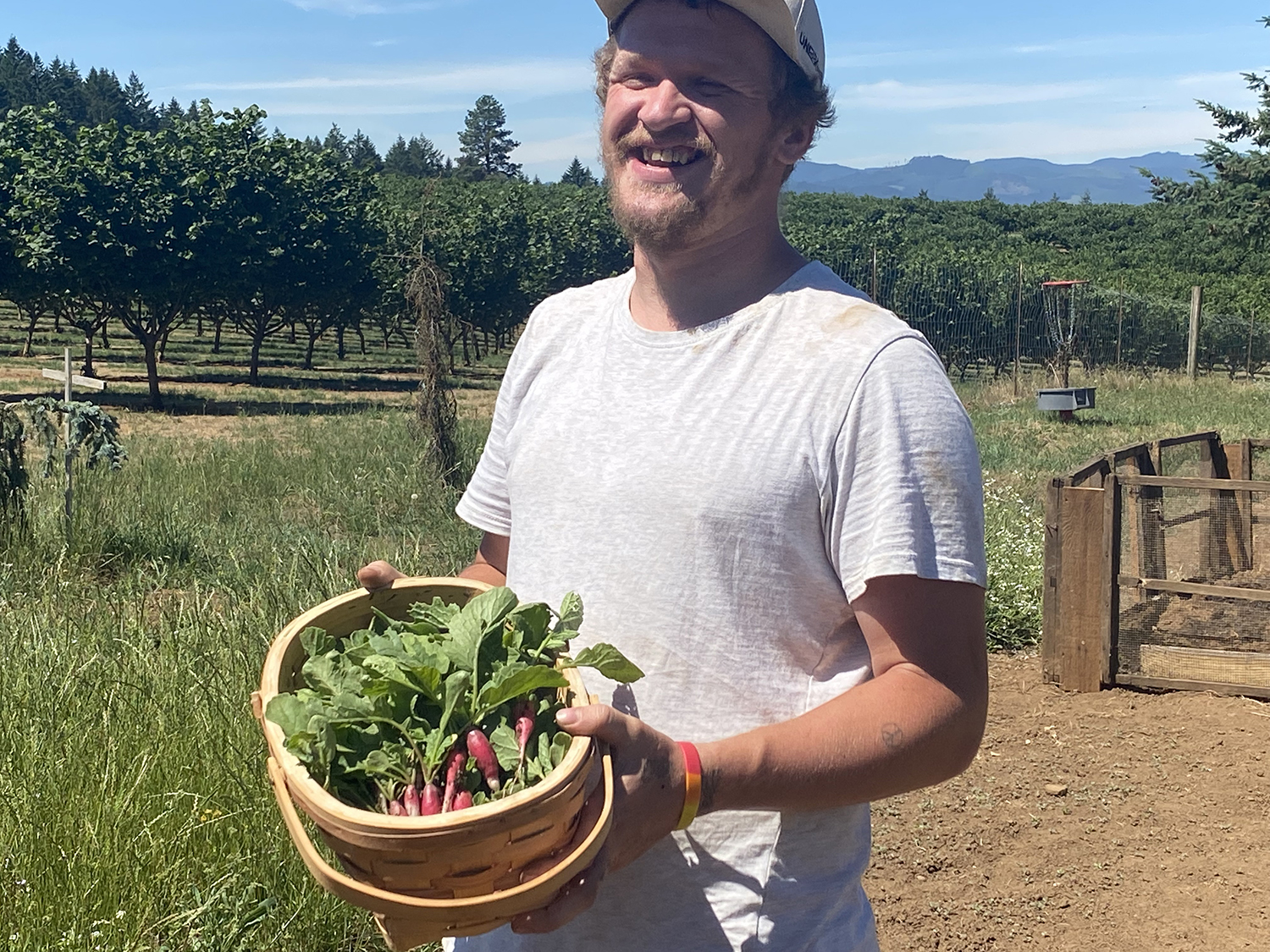
Harvesting radishes at Blanchet Farm.
Gardening Benefits Addiction Recovery
People new to addiction recovery often find themselves needing to fill a void that they once filled with drugs, alcohol, or unhealthy behaviors. Gaining sobriety is hard, and maintaining it long-term requires positive activities to occupy your time. It’s important to stay busy and avoid boredom. This looks different for everyone but many people have found joy and purpose in gardening.
Gardening and caring for plants is a low-risk activity to try. Unlike humans, plants are manageable and non-threatening. They don’t judge. This is important because many individuals in recovery have had negative social interactions and experienced trauma that led them to self-soothe with substances.
Gardening provides a way to spend time outside which can be healing on its own. Many of us have experienced a sense of calm just by looking at a garden or natural setting. Add to that the purposeful planting of seed then watching it slowly come to fruition to build feelings of self-worth and value.
At Blanchet Farm, residents in recovery have the opportunity to spend time in nature tending the flower and vegetable gardens daily. There is also beekeeping, animal husbandry, and grounds maintenance. All of the produce grown at the farm is eaten by the residents there. Growing and sharing food with others builds connections and self-empowerment.
A collection of studies show that gardening benefits the health of individuals in addiction recovery in the following ways:
- Reduces anxiety
- Increases Vitamin D
- Exercises the body
- Improves mood and sleep
- Improves cognitive function
Gardening can even be a metaphor for the gradual route that someone takes on the road to recovery. Start small, be consistent, and be patient with growth.














